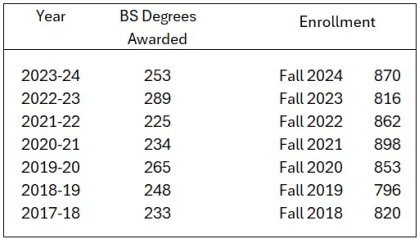ABET Accreditation
Electrical and Computer Engineering (ECE)
The undergraduate program in Electrical and Computer Engineering is accredited by the Engineering Accreditation Commission of ABET, https://www.abet.org, under the commission’s General Criteria and Program Criteria for Electrical, Computer, Communications, Telecommunication(s), and Similarly Named Engineering Programs.
Accordion Content
The Department of Electrical and Computer Engineering (ECE) at Rutgers University is dedicated to providing the highest quality broad-based technical, scientific, and liberal arts education. ECE provides and maintains an outstanding educational program in an environment that develops diverse skills designed for professional success.
-
The current educational objectives of the Electrical and Computer engineering program are that within 3-5 years:
- Expectation: graduates will exceed the expectations of employers of electrical and computer engineers;
- Advanced Study: qualified graduates will pursue advanced study if they so desire; and
- Leadership: graduates will pursue leadership positions in their profession and/or communities.
-
Students from the Electrical and Computer Engineering program will attain (by the time of graduation):
- an ability to identify, formulate, and solve complex engineering problems by applying principles of engineering, science, and mathematics
- an ability to apply engineering design to produce solutions that meet specified needs with consideration of public health, safety, and welfare, as well as global, cultural, social, environmental, and economic factors
- an ability to communicate effectively with a range of audiences
- an ability to recognize ethical and professional responsibilities in engineering situations and make informed judgments, which must consider the impact of engineering solutions in global, economic, environmental, and societal contexts
- an ability to function effectively on a team whose members together provide leadership, create a collaborative and inclusive environment, establish goals, plan tasks, and meet objectives
- an ability to develop and conduct appropriate experimentation, analyze and interpret data, and use engineering judgment to draw conclusions
- an ability to acquire and apply new knowledge as needed, using appropriate learning strategies
-
